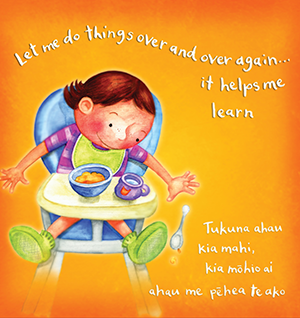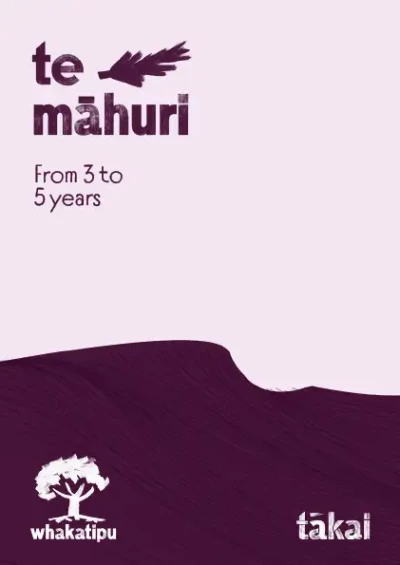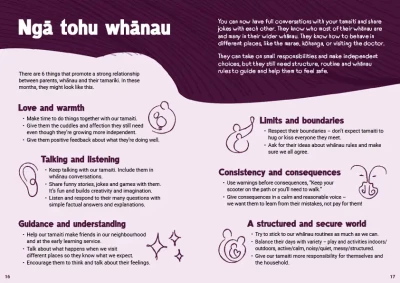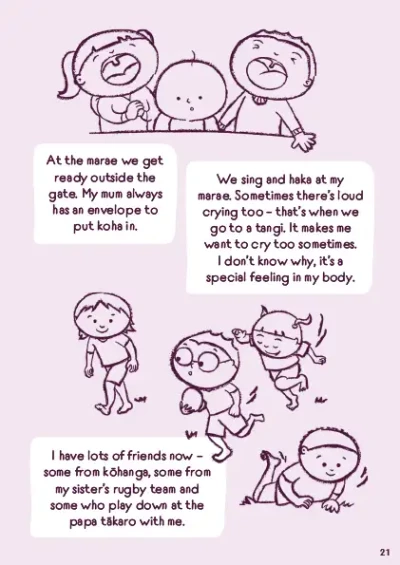
Te hinengaro mīharo
The child's brain develops through repeated actions creating and strengthening connections. An older child will start to show creativity and imagination due to these new connections in their brain.
The amazing brain
Information about ‘Te hinengaro mīharo’ is woven all throughout the Whakatipu booklets.
‘ Hinengaro ’ translates as mind, thought, intellect, consciousness and awareness. ‘Mīharo’ means ‘amazing’ or ‘marvellous’. In other words – the amazing brain!
We hear a lot about brain development in the first 3 years of a child’s life and how it’s the period of the most rapid brain growth.
Ask whānau to think about some of the things our tamariki have learned by this age. They’ve learned how to walk, run, jump, climb, talk and sing. Many know how to use a remote control, an iPad and a smartphone.
- What else has your tamaiti learned?
Repetition repetition repetition
All of this learning has happened by doing things over and over again. Each time something is repeated, a fatty coating called myelin is being produced in the brain. Myelin wraps around the neurons, creating a protective insulation that ensures messages are sent efficiently from neuron to neuron.
The myelin coating around the many, many neurons are part of why the brain is increasing in size.
Imagine that
At this age, our tamaiti is better able to imagine things. They can visualise or see things in their mind due to the new connections in the vision centres of their brain. That’s why we see an increase in their creativity and imaginative play, and why some of the stories tamariki tell might seem a little over the top! (Te Māhuri, page 22).
Ask whānau:
- What have you noticed about your child’s imagination?
- Can you think why there might be pluses and minuses associated with this new ability?
- What might they be?
Our brain likes a giggle
Page 16 of Te Māhuri encourages whānau to share funny stories, jokes and games with tamariki. Laughing is good for all of us – not just children.
Endorphins, known as the brain’s ‘feel good’ chemicals, are released when we laugh, especially when we laugh with friends and family.
What have you laughed about with your tamaiti lately?
Helpful resources for whānau
-
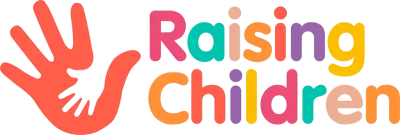
The importance of being active
Raising Children NZ
This video on the Raising Children New Zealand website reminds us about the vital link between physical activity and brain development.
-
Growing great brains<
Growing great brainsJason Tiatia from the Brainwave Trust shares some tips on helping pēpi grow great brains.
-
Dr Bruce Perry Pt 3.<
Dr Bruce Perry Pt 3.
